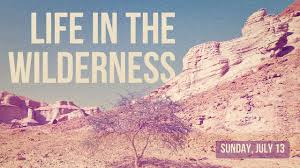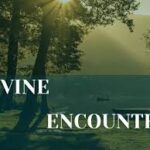By Michael Nyavi (Sir Michael)
Life is more than the sum of our days; it is a pilgrimage through gardens and deserts, through applauding crowds and lonely caves. Some begin with the wind at their backs; others enter the world against a storm. Yet, as Scripture and history testify, it is often the wilderness—the unplanned detour, the stretch of sand where our footprints feel fragile—that forges the soul for lasting purpose. This essay explores the meaning of life, the contrast between bright starts and difficult beginnings, and how God weaves both into redemptive stories, linking biblical figures like David and Joseph to modern exemplars such as Nelson Mandela and Kwame Nkrumah.
The Meaning of Life: Purpose, Presence, and Participation
To ask what life means is to ask why we are here and how we should live. The Bible centers meaning not in self-invention alone but in relationship with God and service to neighbor. The psalmist captures this orientation: “In your presence there is fullness of joy” (Psalm 16:11). Life’s meaning flows from God’s presence and mission—loving Him wholly (Deuteronomy 6:5) and loving our neighbor as ourselves (Leviticus 19:18; Matthew 22:37–40).
The biblical vision aligns with, yet also transcends, many philosophical accounts. Aristotle described the goal of life as eudaimonia—flourishing through virtuous activity in accordance with reason. Augustine of Hippo refined the search: our hearts are restless until they rest in God, the highest good. Thomas Aquinas later synthesized the biblical and classical traditions by teaching that our ultimate end (telos) is the beatific vision—union with God—while our temporal lives are ordered by virtues that train desire toward that end. In the twentieth century, Viktor Frankl, writing out of the crucible of the Holocaust, argued that humans can endure almost any “how” if they possess a compelling “why.” Meaning, he noted, is often discovered by serving a cause greater than the self, loving someone beyond the self, and bearing suffering with dignity when suffering cannot be removed.
Scripture affirms this: life is gift (Genesis 2:7; Acts 17:25), stewardship (1 Corinthians 4:2), and calling (Ephesians 2:10). We are not accidents adrift on indifferent seas; we are summoned. Even hardship is not wasted: “We know that in all things God works for the good of those who love him” (Romans 8:28). Meaning, then, is not merely a concept to define; it is a vocation to inhabit—God’s story received, reflected, and enacted.
The Positive Beginning of Life: Early Favor and Its Tests
Some lives appear to start on green pastures. Joseph, “the son of his [father’s] old age,” wore a multicolored coat and enjoyed a favored place in Jacob’s house (Genesis 37:3). He dreamed dreams of elevation—bundles bowing, stars and sun paying homage—visions that hinted at a future he could scarcely map (Genesis 37:5–11). David, though the youngest and initially overlooked, still enjoyed the quiet schooling of the shepherd fields, a school rich in music, courage, and prayer (1 Samuel 16:11–13; Psalm 23). Early blessings—family favor, natural aptitude, formative education—can give confidence and opportunity.
Modern figures know this dynamic. Kwame Nkrumah’s early education, sharpened in Ghana and abroad, cultivated intellectual breadth and organizational skill. The formative privileges of learning and exposure seeded his capacity to articulate a cohesive vision for national independence and pan-African solidarity. Similarly, Nelson Mandela’s legal training gave him a platform and fluency to challenge apartheid’s legal fictions and to imagine a constitutional order built on dignity and equality.
Yet the biblical record warns: early favor is not a finish line but a stewardship. Joseph’s dreams bred envy; David’s anointing attracted spears. Gifts that lift us can also paint targets on our backs. Privilege becomes a true blessing only when harnessed for service, when early sunlight matures into fruit through the heat of noon.
The Negative Start of Life: Hard Soil and Hidden Possibilities
Not every seed falls on soft ground. Some begin in scarcity, rejection, or peril. Joseph’s brothers, bristling with resentment, sold him into slavery (Genesis 37:28). In Egypt he was falsely accused and imprisoned (Genesis 39:11–20). David was dismissed by brothers who questioned his motives (1 Samuel 17:28) and hunted by a jealous king (1 Samuel 18–24). The “negative” start is not a verdict; it is a valley. Scripture insists that God sees the valley traveler (Psalm 34:18) and can turn even intended harm toward healing (Genesis 50:20).
Modern parallels abound. Nelson Mandela’s youth unfolded under the degrading architecture of apartheid; a system engineered to diminish. He would spend twenty-seven years in prison, the very symbol of constrained life. Kwame Nkrumah led Ghana to independence (1957) only to face fierce opposition and eventual exile after the 1966 coup. Such beginnings and reversals do not erase meaning; they shape it. As James counsels, “Consider it pure joy…whenever you face trials…because you know that the testing of your faith produces perseverance” (James 1:2–3; see also 1 Peter 1:6–7).
Life in the Wilderness: God’s Classroom of Character
The wilderness in Scripture is both geography and pedagogy. Israel’s forty-year desert journey is described as a divine test designed to humble and teach dependence: “to know what was in your heart” (Deuteronomy 8:2–3). Hosea envisions the desert as the place where God speaks tenderly and reorders hope (Hosea 2:14–15). Even Jesus is led by the Spirit into the wilderness to be tempted, emerging with clarified mission (Matthew 4:1–11).
Joseph’s wilderness spans pits, caravans, and prisons. Yet even there, “the Lord was with Joseph” and granted him favor (Genesis 39:2–3, 21–23). David’s wilderness is literal—Adullam’s cave, En-gedi’s crags (1 Samuel 22–24). He writes psalms of thirst and trust: “O God…my soul thirsts for you…in a dry and weary land” (Psalm 63:1). The wilderness pares life down to essentials; it removes ornaments we mistake for anchors. There, identities not rooted in God erode; identities grounded in Him deepen.
Philosophically, the wilderness is where cheap optimism dies, and resilient hope rises. Søren Kierkegaard distinguished between aesthetic, ethical, and religious stages of life—arguing that genuine selfhood is forged by decisive commitment before God, often in the face of anxiety and absurdity. Albert Camus, standing outside Christian faith, counseled lucid defiance against the absurd. Scripture offers a third way: neither denial nor defiance alone, but faith—trust that God is at work in barren seasons, producing timeless fruit (Isaiah 40:31; Romans 5:3–5).
Turning Points: From Desolation to Destiny
In the desert, God prepares unexpected dawns. Joseph interprets Pharaoh’s dreams, rises to second-in-command, and becomes a conduit of preservation, not vengeance (Genesis 41; 45:4–8). His confession—“You meant evil against me, but God meant it for good” (Genesis 50:20)—is the wilderness distilled. David spares Saul, refusing to grasp the crown before its time (1 Samuel 24:4–7), and eventually receives a throne that his character can bear (2 Samuel 5:1–5).
Consider Mandela, who walked out of prison in 1990 with a posture not of retaliation but reconciliation. His wilderness yielded a moral imagination capacious enough to hold both justice and forgiveness. Likewise, Nkrumah’s exile did not erase his intellectual legacy; his writings continued to shape continental debates about sovereignty, development, and unity. Wilderness does not cancel destiny; it calibrates it. The apostle Paul, writing from confinement, noted that his chains actually advanced the gospel (Philippians 1:12–14). Scarcity can become seed.
Two Kinds of Beginnings, One Faithful God
Whether life opens like a sunrise or a storm, the Author is the same. Early advantage without character corrodes; early disadvantage without hope crushes. But in God’s hands, both are braided into calling. The shepherd’s solitude trained David for kingly courage; the prisoner’s patience trained Joseph for executive wisdom. Scripture’s promise is not that believers skip deserts but that deserts cannot cancel God’s designs (Jeremiah 29:11; Proverbs 19:21).
For those who began well, the call is stewardship: “To whom much is given, much will be required” (Luke 12:48). For those who began in shadows, the call is courage: “Though the righteous fall seven times, they rise again” (Proverbs 24:16). Either way, the path runs through the wilderness, where God’s presence becomes our provision (Exodus 16), God’s word our bread (Deuteronomy 8:3; Matthew 4:4), and God’s promise our compass (Isaiah 43:1–2).
How Life Becomes Positive Through Struggle
“Positive” life, in the Christian register, is not the absence of trouble but the presence of grace that repurposes trouble. Three movements mark this transformation:
- Reframing: Suffering is not senseless when yoked to purpose. Frankl observed that meaning can transfigure pain; Scripture goes further and promises God’s active providence in it (Romans 8:28). Joseph reframed his biography through God’s intentions (Genesis 50:20).
- Refining: Trials purify faith like fire refines gold (1 Peter 1:6–7). David’s cave-sung psalms are richer than his palace-sung ones, not because palaces are evil but because caves demand an undiluted trust. James insists that endurance produces maturity, not merely survival (James 1:2–4).
- Redeploying: The person formed by wilderness becomes a gift to others. Joseph used power to feed enemies; David learned to lead with mercy; Mandela championed reconciliation; Nkrumah’s ideas outlived his office. Paul’s chains emboldened the church (Philippians 1:12–14). The Christian life is cruciform: out of death comes life (John 12:24).
Thus, life becomes “positive” not by erasing scars but by reinterpreting them as seams of grace. The cross, history’s darkest hour, becomes the hinge of salvation (Colossians 2:13–15). If God can turn that valley into victory, He can meet us in ours.
Practicing Wilderness Wisdom Today
- Cling to God’s presence: Like David, make prayer your first geography (Psalms 27, 63).
- Honor small obediences: Joseph served faithfully in Potiphar’s house and in prison before serving in Pharaoh’s court (Genesis 39–41). Faithfulness is portable.
- Seek the good of others: Mandela’s and Nkrumah’s legacies remind us that personal vindication is too small a goal; pursue communal flourishing (Jeremiah 29:7).
- Interpret your story with Scripture: Let Romans 8:28, Isaiah 43:1–2, and Philippians 4:12–13 re-narrate your hardships.
- Hold power with humility: David’s refusal to harm Saul (1 Samuel 24) models restraint. Influence gained without humility becomes a desert of another kind.
Conclusion
Life in the wilderness is not a detour but a design space where God engraves courage, wisdom, and compassion on the human heart. Some start on hills, others in hollows; either way, the way to durable joy runs through deserts. Joseph and David show that God writes straight with crooked lines; Mandela and Nkrumah show that history can be bent toward hope by people trained in adversity. The promise is not comfort without cost but purpose without expiration. And the God who led Israel by cloud and fire still leads His people—through wasteland to water, through night to morning—until, in His presence, meaning is not merely understood but fulfilled.
Selected Scripture References (paraphrased or summarized)
- Genesis 37; 39–41; 45; 50:20 — Joseph’s favored beginning, betrayal, imprisonment, rise, and confession of God’s redemptive intent.
- 1 Samuel 16–24; 2 Samuel 5 — David’s anointing, wilderness years under Saul, merciful restraint, and eventual kingship.
- Deuteronomy 8:2–3 — Wilderness as testing and training; “man does not live by bread alone.”
- Hosea 2:14–15 — God leads into the wilderness to speak tenderly and to turn the Valley of Achor into a door of hope.
- Psalms 16:11; 23; 27; 34:18; 63 — God’s presence, shepherding care, courage, nearness to the brokenhearted, and thirst for God in dry lands.
- Isaiah 40:31; 43:1–2 — Strength renewed; passing through waters and fire with God’s presence.
- Jeremiah 29:11 — God’s plans for hope and a future.
- Matthew 4:1–11 — Jesus’ wilderness temptation and triumph through Scripture.
- Romans 5:3–5; 8:28 — Suffering producing character; God working good in all things.
- James 1:2–4; 1 Peter 1:6–7 — Trials testing faith and producing maturity.
- Philippians 1:12–14; 4:12–13 — Imprisonment advancing the gospel; learned contentment and strength in Christ.
- Proverbs 24:16; Luke 12:48 — The righteous rising again; stewardship of much.
References to Scholars and Thinkers
- Aristotle, Nicomachean Ethics — Human flourishing (eudaimonia) through virtue.
- Augustine of Hippo, Confessions; The City of God — Restlessness of the heart and ultimate rest in God as highest good.
- Thomas Aquinas, Summa Theologiae — Human telos in union with God; virtues ordering life toward our ultimate end.
- Søren Kierkegaard, The Sickness Unto Death; Either/Or — Selfhood, faith, and choosing a life before God amid anxiety.
- Albert Camus, The Myth of Sisyphus — Confronting the absurd with lucid perseverance (offering contrast to Christian hope).
- Viktor E. Frankl, Man’s Search for Meaning — Meaning discovered through love, work, and courageous suffering.
- Kwame Nkrumah, Consciencism: Philosophy and Ideology for Decolonization — Vision of human dignity, social transformation, and African liberation.
- Nelson Mandela, Long Walk to Freedom — Memoir of struggle, imprisonment, and the moral imagination of reconciliation.
- Martin Luther King Jr., “Letter from Birmingham Jail” — Creative suffering and the moral urgency of justice shaped by agape.
By Michael Nyavi ( Sir Michael).
Contact numbers: 0596888812/0207050750.




https://shorturl.fm/FKkyW
https://shorturl.fm/gMnQm